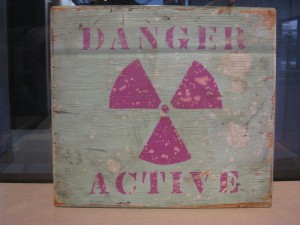Nuclear waste is toxic to all organisms and remains active for 100 000 years. To put that in perspective, it’s about the same amount of time that the human species has existed and we’ve changed a lot in that time frame.
To find out how nuclear radiation affects people you can read this article on ABC News, or watch: Radiation and the Human Body – ABC News.
Nuclear power plants have produced between 250 000 and 300 000 tons of nuclear waste worldwide. Interim storage of this waste currently consists of above ground water pools. This is not a viable long-term solution because conditions are unpredictable and long-term, in this case, is 100 000 years. We have no idea what the world will be like in that amount of time.
Finland has begun creating a permanent storage facility for their nuclear waste. They’ve named it Onkalo – “hiding place” in Finish. Onkalo consists of a series of tunnels descending 5 kilometers into the bedrock. Construction began in 1970 and will be finished in 2100, meaning that nobody working on the project today will be alive when it is finished. When Onkalo is complete the tunnel will be filled with rock and clay, and the entire site will disappear back into the surrounding area.
The documentary “Into Eternity” gives a disquieting look at the construction of Onkalo and science behind it. Narrated as though it is being watched by a future generation, the film begins by saying “stay away from this place and then you will be safe.” You can watch the film on youtube.
There is no way to guarantee that future species won’t dig into Onkalo. We are still unable to decipher many of the languages spoken by our ancestors. Will languages spoken today mean anything in the future? How can we communicate danger to the unknown?
Whether or not to mark Onkalo’s presence is still being debated. Many worry that marking the site will peak the curiosity of future “humans”, leading them to dig it up, before understanding that it was built to protect them. Humans have a history of ignoring signs to leave things undisturbed. When the Egyptian’s built the pyramids, they never intended for them to be excavated. However, the wishes of the distant past were not enough to stop us. On the other hand, what if we don’t mark it and it is discovered by accident and there are no warnings in place?
This leads me to think that curiosity might have killed the cat, but radiation may wipe out the future and makes me wonder if nuclear energy is really a good alternative energy source? Is it really responsible to leave around tons toxic waste that could destroy future organisms? And isn’t it rather unsettling that even after 130 years of construction the only thing we’re going to be able to do is hope that Onkalo and the secret it contains are never discovered?

